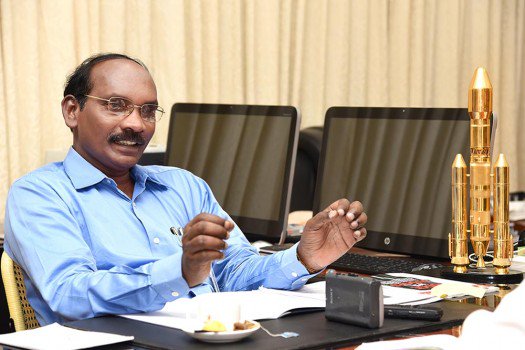No products in the cart.
ISRO’s massive earning in the last 3 years by launching foreign satellites, check out full details
The Indian Space Research Organisation (ISRO) saw a steady increase in its revenues despite earnings from satellite launches remain low.
Between April 2015 to March 2018 (3 year period), ISRO through its commercial arm Antrix Corporation Limited earned Rs 5,600 crore from marketing products and services, including the launching of satellites for customers, mainly from other countries. Of this staggering amount, about Rs. 1,932 crore was earned in 2017-18, which was slightly more than Rs 1,872 crore in 2016-17.

At the same time frame, ISRO splashed around Rs 7,209 crore on numerous missions in the areas like space transportation systems, earth observation, satellite communication and navigation, space science and planetary exploration.
“The revenue we earn through foreign satellite launches is only 10% to 20% on average, while more than 75% of our revenue comes from satellite communication business. The remaining comes from other services, with transponder leasing and revenue coming from ground station services abroad,” Antrix chairman and managing director S Rakesh told TOI.
ISRO currently 84 major clients using its communication services, including big service providers- Reliance and television groups like Sun Network. Moreover, ISRO launched 99 satellites, 69 of which were foreign satellites including several student and university satellites.
But since ISRO’s primary responsibility is to meet national demand and given its heavy dependence on the PSLV class of launch vehicles, all the commercial launches have been micro and nanosatellites sharing space with the main Indian satellite.
“We are looking to increase dedicated commercial (where the main and only payload will be a client’s) launches, but that’s based on the availability of launch vehicles after internal needs are met,” Rakesh said.
A senior official said that the organisation should be able to build more rockets immediately in order to increase earnings. “If we want to earn more from such launches we need to be able to build more rockets more quickly and have at least 18 launches a year, for this we are also looking to the industry,” the official said.
ISRO chairman Dr Sivan K told TOI: “As and when there’s demand we can surely make PSLV available for Antrix, but the GSLV class of vehicles will be difficult, given that we still have a lot of things to deal with.”











